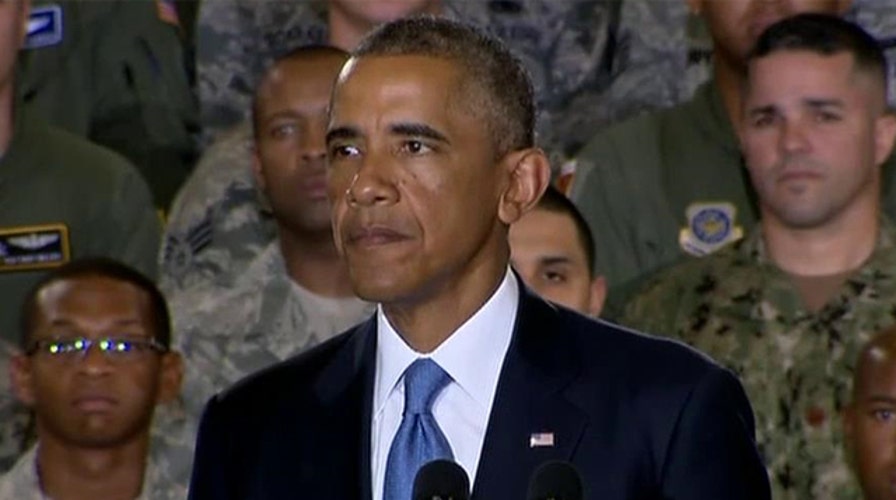In his address to the nation last week, President Obama declared to the nation — to the world — that ISIS (also known as ISIL, the Islamic State of Iraq and the Levant) was not Islamic.
Across the globe, jaws dropped.
It’s not my purpose today to cite chapter and verse why President Obama is wrong. Pundits have been doing that for days. Instead, I want to focus on the deeper question: Why is ISIS’ Islamic identity critical to its appeal to the Muslim world?
[pullquote]
After all, if ISIS isn’t “Islamic,” then tens of thousand of devout young Muslims wouldn’t be flocking to its banner.
If ISIS isn’t “Islamic,” then opposing Islamic militias would swell with the ranks of the faithful, eager to root out the apostates in their midst.
Instead, however, ISIS grows, its various jihadist rivals shrink and the U.S. is under the greatest threat since 9/11.
Understanding ISIS’ Islamic identity is critical to understanding the true dimensions of its appeal to Muslims and its growing international power.
This summer, as the ISIS challenge was just beginning to emerge, I traveled to Oxford University’s Harris Manchester College, along with key members of our American Center for Law and Justice (ACLJ) “law of war” team. There, we launched an in-depth study of ISIS, its motivations and its capabilities. We turned the papers we created into a book, "Rise of ISIS: A Threat We Can’t Ignore."
We combined our academic study with on-the-ground experience in Iraq and years of international legal experience combating jihadists in international tribunals to tell the truth — the whole truth — about ISIS.
And the truth is that ISIS’ core appeal is in its Islamic identity, and it is that identity that makes ISIS so dangerous.
At its heart, ISIS represents the quest to restore the Muslim world to its glory days — to the days of the caliphate, when Muslim rule stretched across the Middle East and deep into Europe. This caliphate combined political and religious rule under one leader, a leader who provided his people with a fierce sense of conviction and purpose.
To millions of Muslims — who believe with all their heart that Islam must be ascendant over the entire earth — the dream of a caliphate is powerful indeed. And when they see this new “caliph” rampaging across the Middle East, destroying entire divisions of Iraqi and Syrian troops, they are inspired.
Far from being repulsed by ISIS’ brutality, they see it as effective, as intimidating their enemies and mocking the United States. Remember, this is the same Middle East that not so long ago expelled hundreds of thousands of Jews from Muslim lands — often through violent, deadly pogroms.
This is the same Middle East that has hosted telethons for Palestinian suicide bombers.
This is the same Middle East that Usama bin Laden declared backed the “strong horse.”
Millions of Muslims look at ISIS and see not repulsive savagery, but impressive strength.
It’s past time for American to hear this truth. By minimizing the challenge, President Obama makes it more likely that Americans will go along with the half-measures he’s proposed as a “strategy” to “degrade and destroy” ISIS.
In my new book “Rise of ISIS,” we outline a strategy that can succeed, and we emphatically reject any strategy that depends on arming or funding jihadists, including Syrian jihadists. We must meet ISIS’ strength with America’s much greater strength, partnering only with proven allies.
And we can never forget – while ISIS may be the strongest and wealthiest terrorist organization in the world – it is not the only jihadist group that seeks to kill Americans, destroy Israel and persecute Christianity out of existence. Hamas, Al Qaeda and others are part of the same jihad, with the same objectives.
For too long we’ve pretended that we can end wars through our own retreat or that we can win Middle East allies with soothing words. Our enemies have laughed at us, gathered their forces and are now stronger than they’ve ever been.
The first step to fighting back is telling the truth about the threats we face.
And if the president won’t, we must.

